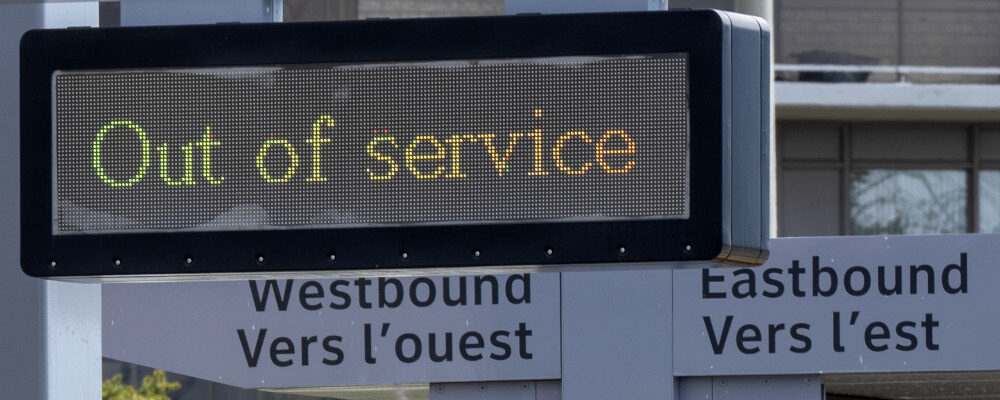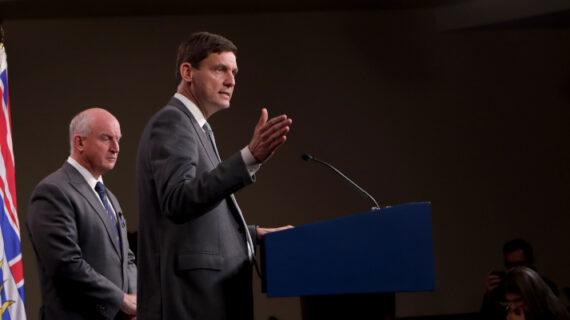There’s a pervasive sense that Canada lacks ambition. We’ve had lackluster economic growth for decades, and while our cities have become expensive places, we don’t seem to build much anymore. I’m not sure it’s a lack of ambition so much as a lack of urgency that’s holding us back.
For all the talk about polarization, Canada has a pretty broad political consensus on some of the biggest issues of the day. Canada’s major political parties agree on maintaining very high levels of immigration, doubling housing construction, and maintaining our position as a global energy superpower, even as the energy mix changes. The trouble is that our ambitions are constantly thwarted by our patience. We all agree that we should do big things, eventually.
Part of the challenge is that doing big things is hard. Even the most valuable projects sometimes have unintended consequences. Even if most people come out ahead, sometimes the burden of large projects falls onto specific groups, be they urban neighbourhoods or Indigenous communities. We need to account for this. But we can’t wait forever for projects that we claim are urgent.
There are tradeoffs in everything. Whether it’s adding a walkup apartment building to an existing neighbourhood or building a copper mine, there are real externalities to consider. The trouble isn’t so much that we consider them, but that we take far too long to think them through. Months and years of studies, consultations, and litigation. We need to weigh tradeoffs, but it shouldn’t take forever. We can’t just go around labeling things emergencies and then letting them fester indefinitely.
A short quote from the CEO of Teck Resources framed the dilemma nicely:
“Across government and industry, there is growing awareness that supporting the low-carbon transition and our growing population means meeting new demand for critical minerals. And that means working together to get new mines online faster.”
It’s a pretty banal statement that most people wouldn’t disagree with. What’s striking about it is that we hear this kind of frustration all the time, and it doesn’t phase us. Governments and industry agree that we should electrify the economy. We need to mine minerals to do so. So we’re in agreement. Yet, we drag our feet. We say we’re in a climate crisis that requires electrifying large parts of the economy.
Eventually.
Eventually is not when you’re supposed to deal with emergencies.
Ontarians have been told ad nauseum about the potential benefits to the mining sector from electrification. We’ve been talking about the Ring of Fire forever. It’s a potential source of critical minerals needed to help electrify the economy. It comes up now and then, politicians proclaim its importance, nod in agreement. What’s holding it up? Consultations and a lack of infrastructure. To be fair, there has been some recent progress. But the world won’t wait for us forever.
There’s also a broad consensus that Canada’s cities need better public transportation. Indeed, we have some grand plans in place. Some of them are going reasonably well, like the buildout of regional rail service in the GTA. But when it comes to local public transportation systems, things are going much less smoothly.
Ottawa’s Confederation Line LRT has become the poster child for dysfunctional public transit systems. The initial budget and timeline were overly optimistic. The project experienced delays and cost overruns. More importantly, its reliability has been questionable. The underlying problems still haven’t been solved.
Not to be outdone, Toronto has its own debacle with the Eglinton Crosstown LRT. It was supposed to open this year. Then right before it was supposed to open it was announced that it wasn’t going to open this year after several years of delays. The news only got worse from there. Now we’re told that there is no timeline for opening or even a concrete plan to fix the hundreds of defects identified. Maybe one day it will feel like $12.8 billion well spent. When that day will be, nobody knows.
And in the most recent Ontario transit news, Doug Ford announced last week that GO Train service will be extended to service Bowmanville. The 20-kilometre extension is estimated to cost $730 million and is expected to be complete by—and this is not a typo—2041.
Finally, consider our housing ambitions. Canada is now expected to take in 500,000 immigrants per year by 2025. That’s an ambitious and worthwhile goal. The only problem is we’re only building around 195,000 housing units per year, and we’ve already got a big housing shortage. According to analysis by Scotiabank economists, we’re 1.8 million housing units short of the G-7 average for per capita housing units. We’re starting from behind and not building enough to accommodate population growth.

There is also broad agreement on housing. The Trudeau and Ford governments agree that housing starts need to increase dramatically. The official opposition is making increasing housing starts a key part of their next election strategy. Bank economists, academics, and think tank analysts across the spectrum seem to agree. Yet, we drag our feet.
The City of Toronto and the Government of Ontario made some long overdue policy changes to enable more housing construction. We’re just a decade too late. Other cities in the GTA, meanwhile, are resisting reforms. In British Columbia, the provincial government has introduced some construction targets for municipalities that may one day be meaningful, pending the details. In short, we took way too long and acted way too timidly.
Canada doesn’t lack ambition or capacity. We can do big things, and we want to. We just need some urgency. There are tradeoffs in everything. But we don’t need to drag our feet making those calls. We need to decide now if electrifying the economy, improving public transportation, and housing people are urgent priorities. If it’s an emergency, we should make it an urgent priority. And, yet…




